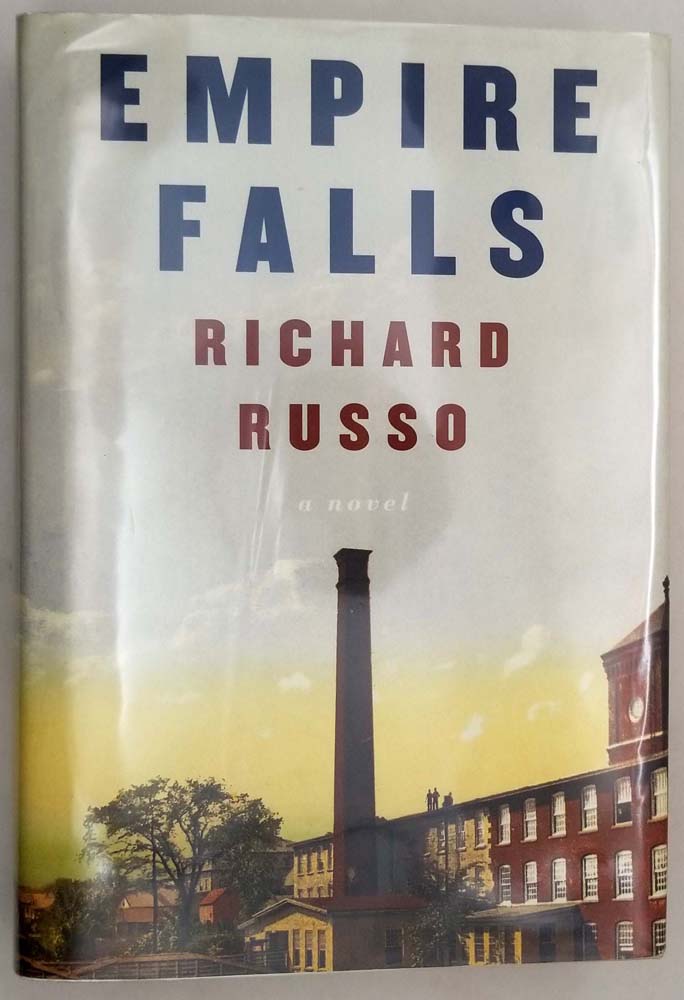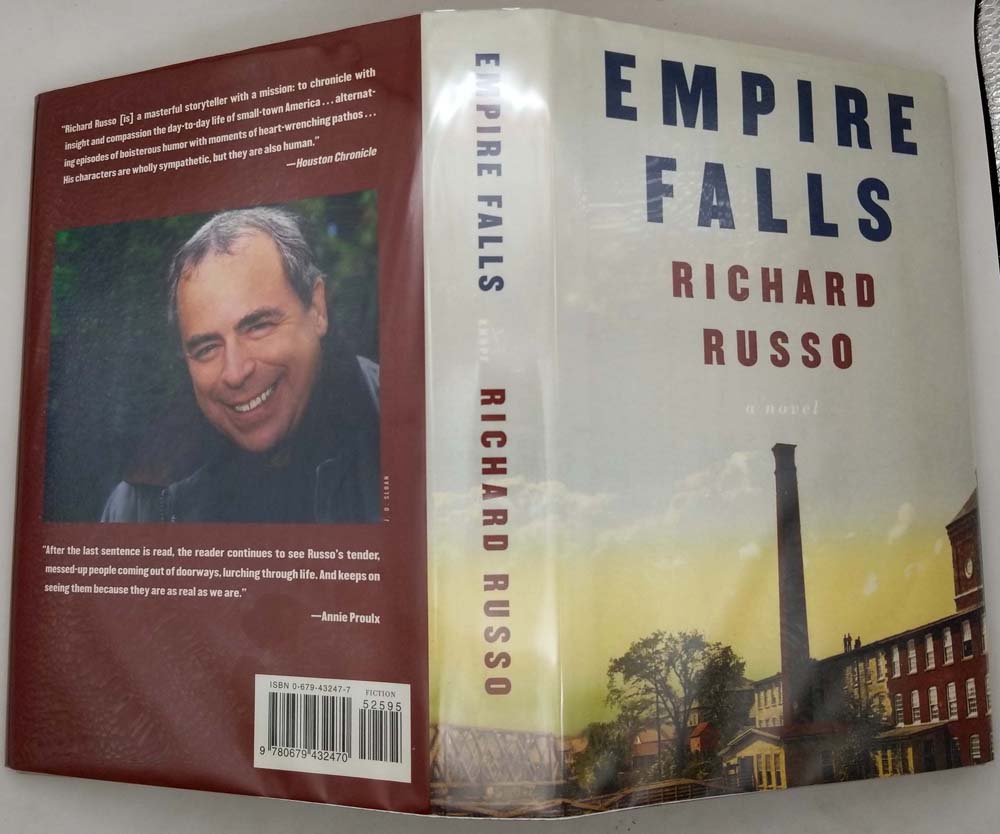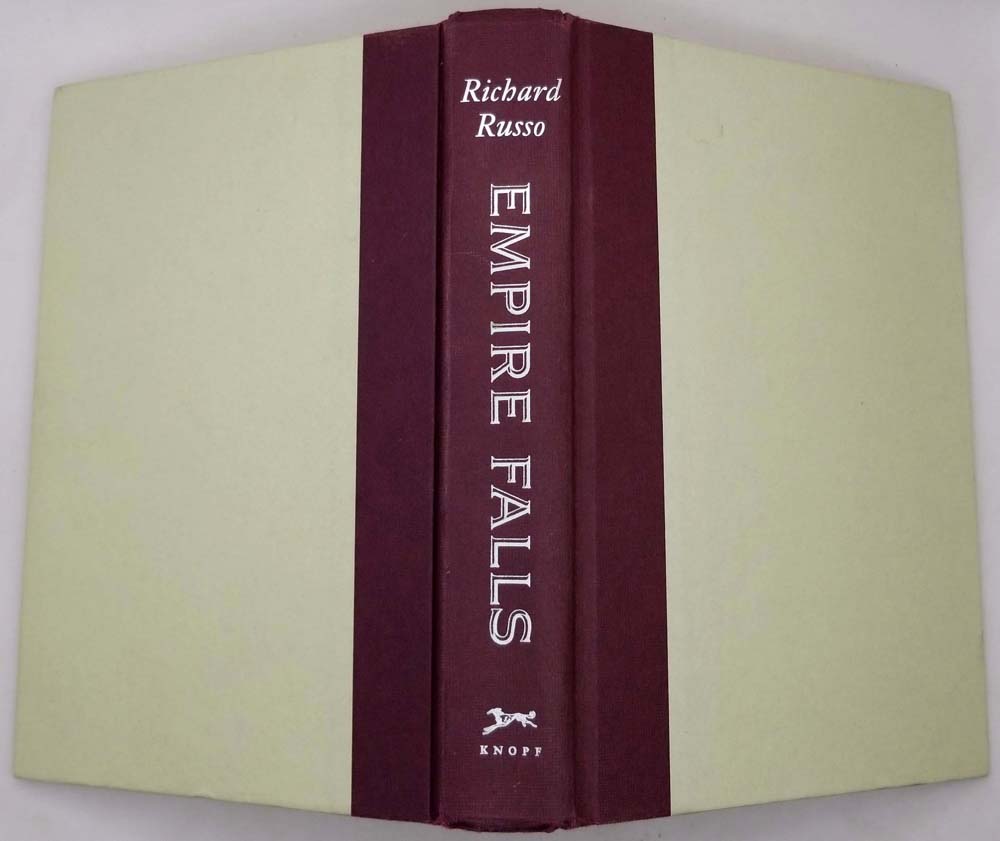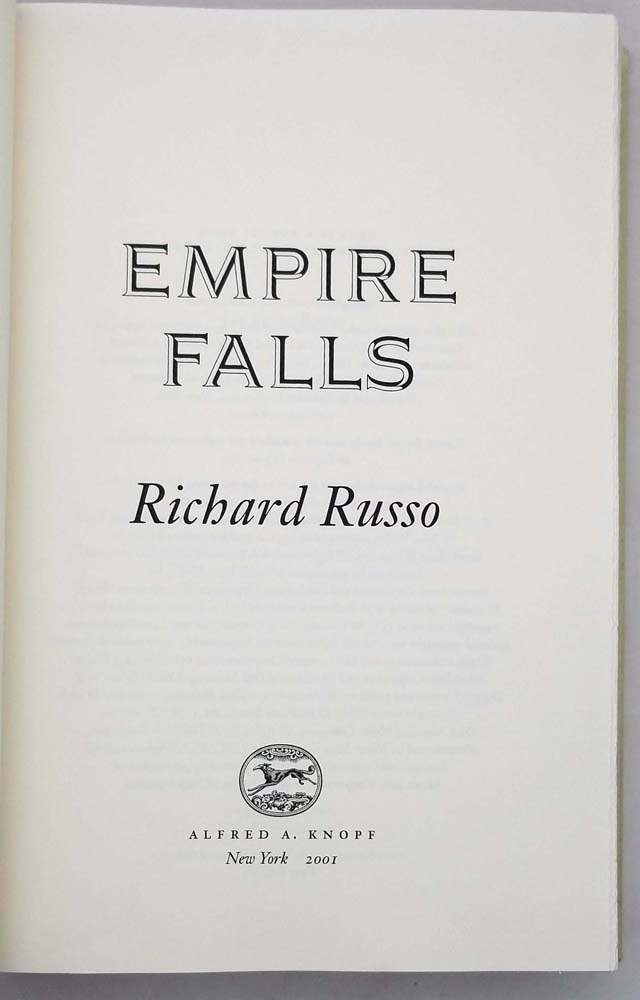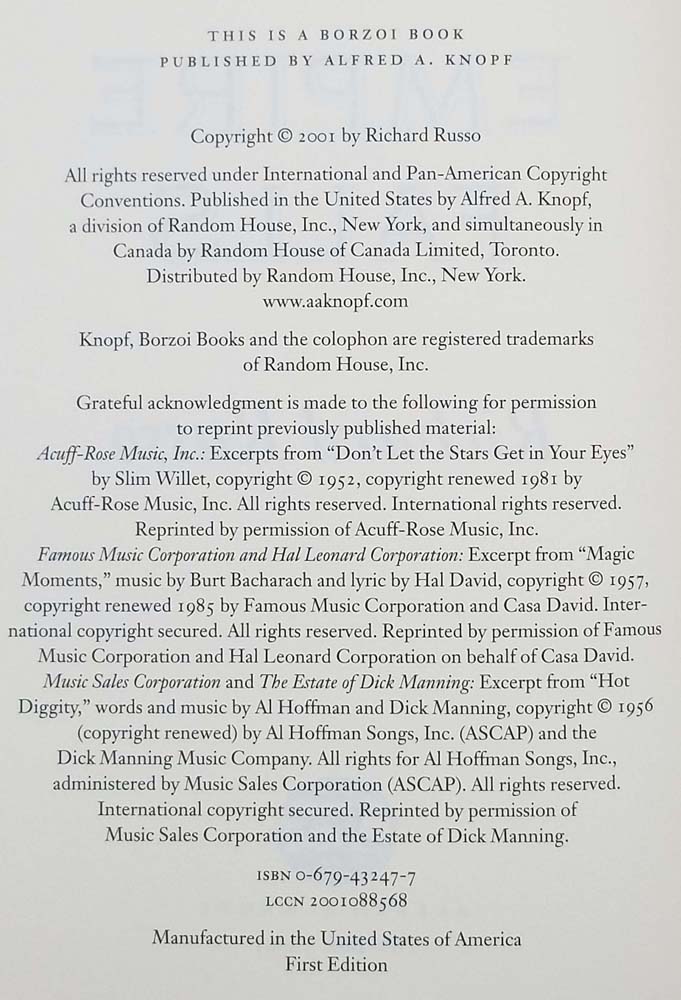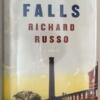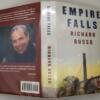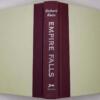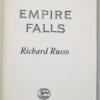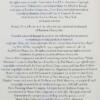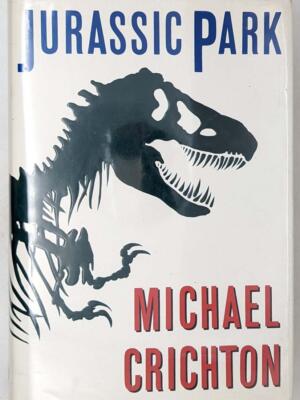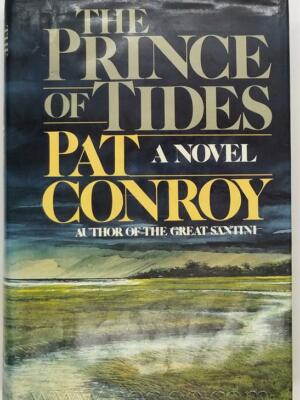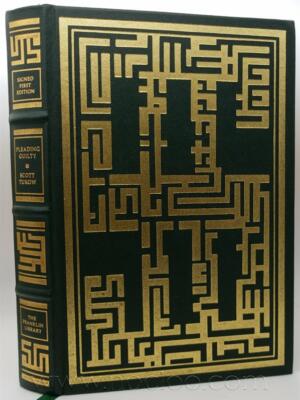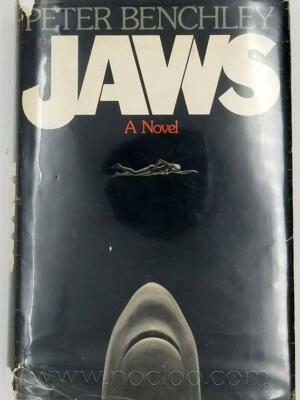Empire Falls (2001) by Richard Russo is a Pulitzer Prize-winning novel that masterfully captures the slow decline of a fictional blue-collar town in Maine, weaving together themes of family, class, and the quiet tragedies of ordinary lives. At its heart is Miles Roby, a kind but weary middle-aged man who runs the Empire Grill, a diner owned by the town’s domineering matriarch, Francine Whiting. Miles’s life is a tapestry of small-town entanglements: his failed marriage, his rebellious daughter Tick, his deadbeat father Max, and his unresolved grief over his mother’s death.
Russo’s genius lies in his compassionate, often humorous portrayal of Empire Falls’ residents—a cast of flawed, deeply human characters clinging to fading dreams. The Whiting family’s shadow looms large, their wealth and manipulation emblematic of the town’s stagnation. As past secrets surface—including a tragic accident that haunts Miles—the novel builds toward a violent reckoning, revealing how history and inertia shape destinies.
With its rich realism and Chekhovian depth, Empire Falls is a poignant exploration of resilience, the weight of the past, and the elusive promise of redemption.
For fans of: The Corrections by Jonathan Franzen or Olive Kitteridge by Elizabeth Strout.
